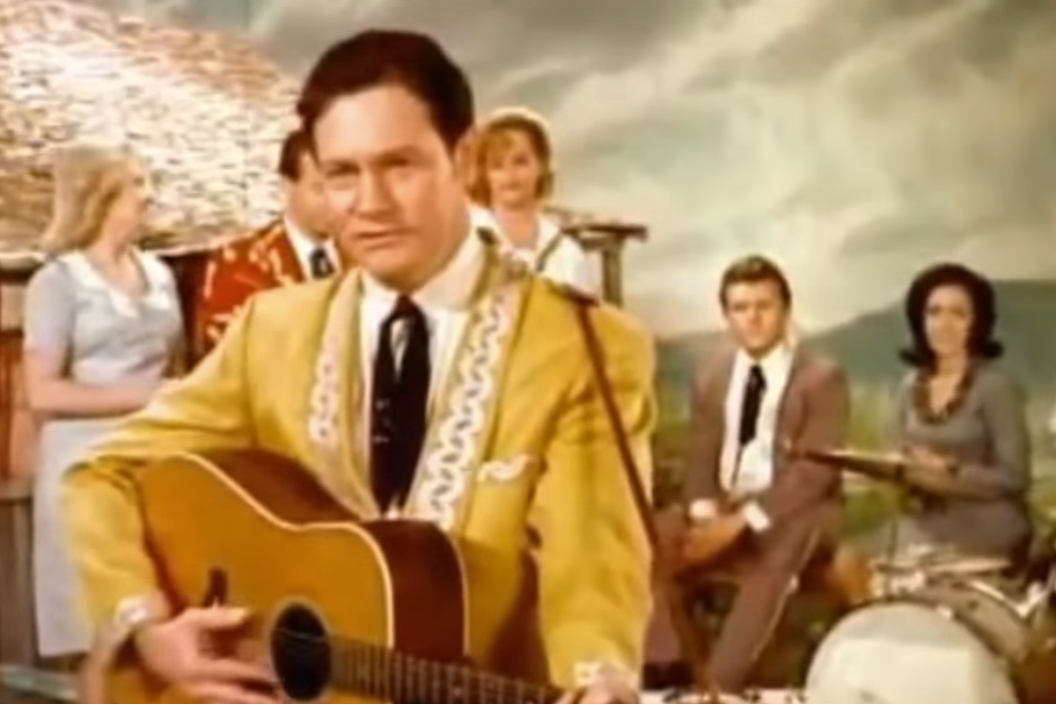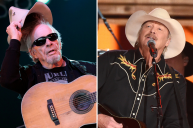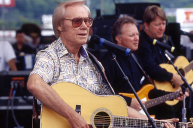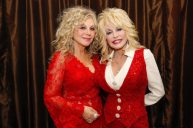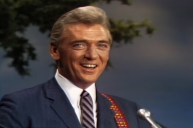From his Columbia Records debut at age 22 until his premature death at age 47, Lefty Frizzell stuck with a note-bending vocal style and honky tonk sound that earned the respect of his peers and the attention of future country and Western stars.
Born William Orville Frizzell on March 21, 1928, the future Lefty was born in Corsicana, Texas and raised in El Dorado, Arkansas. At a formidable age, he discovered his parents' Jimmie Rodgers records. By his teenage years, his own case of the "Travelin' Blues" took hold. Young Lefty sharpened his skills by performing on regional radio stations, in talent shows and at honky tonks across the Southwest.
"Hank and Lefty Raised My Country Soul"
Frizzell signed with Columbia Records' Don Law in 1950 at the behest of Dallas-based talent scout Jim Beck, who'd caught one of the singer's live sets at Big Springs, Texas venue The Ace of Clubs. This big break followed a series of mistakes that found Frizzell serving a brief jail sentence in New Mexico for statutory rape and working in oil fields with his dad instead of realizing his country music dreams.
Both sides of his debut single, "If You've Got The Money (I've Got The Time)" and "I Love You a Thousand Ways," topped the charts that same year. The former, based off a poem Frizzell wrote for his wife while in jail, got inducted into the Grammy Hall of Fame in 1999. A year later, number one hits "I Want to be With You Always" and "Always Late (With Your Kisses)" made him the closest thing to competition Hank Williams had on the jukebox—as celebrated in Merle Haggard's "The Way It Was in '51" and Stoney Edwards' "Hank and Lefty Raised My Country Soul."
During his commercial heyday as a touring performer, Frizzell regularly appeared on the Grand Ole Opry and its closest radio rival, the Louisiana Hayride.
As big hits slowed down by the mid-'50s, Frizzell ignored rockabilly and pop trends and stayed true to his honky tonk roots. Whenever Nashville's whims favored Frizzell's vision, he'd swiftly return to the Top 10. For example, when saga-songs like Marty Robbins' "El Paso" were all the craze, Frizzell found success with the original recording of the often-covered murder alibi "The Long Black Veil."
Frizzell's other '50s singles of note include "I'm An Old, Old Man (Tryin' To Live While I Can)," "Give Me More, More, More (Of Your Kisses)," "Cigarettes and Coffee Blues," "How Long Will It Take (To Stop Loving You)," "Don't Stay Away (Till Love Grows Cold)" and "Forever (And Always)."
The first decade of Frizzell's career alone influenced the future of popular music. Back then, he was a favorite of George Jones. Likewise, Haggard loved Lefty so much that he ended up owning his hero's custom Gibson J-200 guitar. On the rock end of Tennessee's popular music spectrum, Roy Orbison paid tribute to an old favorite by calling himself "Lefty Wilbury" during his time with '80s supergroup The Traveling Wilburys.
Read More: The 30 Best Country Singers and Stylists of All Time
A Second Wind
Frizzell relocated from Los Angeles to Nashville in 1960 after his gig with California-based television show Town Hall Party ended. The hits slowed down in the new decade, aside from his final number one, 1964's "Saginaw, Michigan," and Top 20 country hit "She's Gone, Gone, Gone." Around this time, drinking problems started derailing the career of a still-young country singer.
In retrospect, Frizzell's limited '70s output makes for his second most rewarding stretch of songs outside of the early '50s. "That's the Way Love Goes," Jimmy Buffett co-write "Railroad Lady," future Haggard album track "You, Babe," and even Gene Watson and Keith Whitley's neo-traditionalist rallying cry "I Never Go Around Mirrors" were among his final singles and overlap his exit from Columbia and short stay with ABC Records. In this time frame, his deeper, weathered voice added a new wrinkle to his trademark delivery.
Avoiding his high blood pressure medication so he could keep drinking took its toll on the singer by this point. Frizzell died on July 19, 1975. Posthumous celebrations of an American music legend included Willie Nelson's 1977 covers album To Lefty From Willie. It starts with a solid take on "Mom and Dad's Waltz" and never lets up.
Frizzell joined the Nashville Songwriters Hall of Fame in 1972. A decade later, he was inducted into the Country Music Hall of Fame.
His legacy has been carried on by two younger brothers: Shelly West duet partner and "I'm Gonna Hire a Wino to Decorate Our Home" singer David Frizzell and a third musician and songwriter, Allen Frizzell.
For today's fans, Frizzell represents the roots of numerous traditional-minded artists. He's the Grand Ole Opry legend who taught John Anderson to sing, George Strait to stick to his principles and Randy Travis to make the most of a one-of-a-kind voice.
This story originally ran on July 19, 2018.
Now Watch: 5 Things You Didn't Know About Alan Jackson
